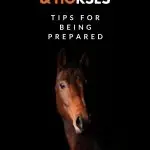Living in Southern California all of my life, earthquakes are definitely something I grew up with but I don’t think you can ever truly get used to them.
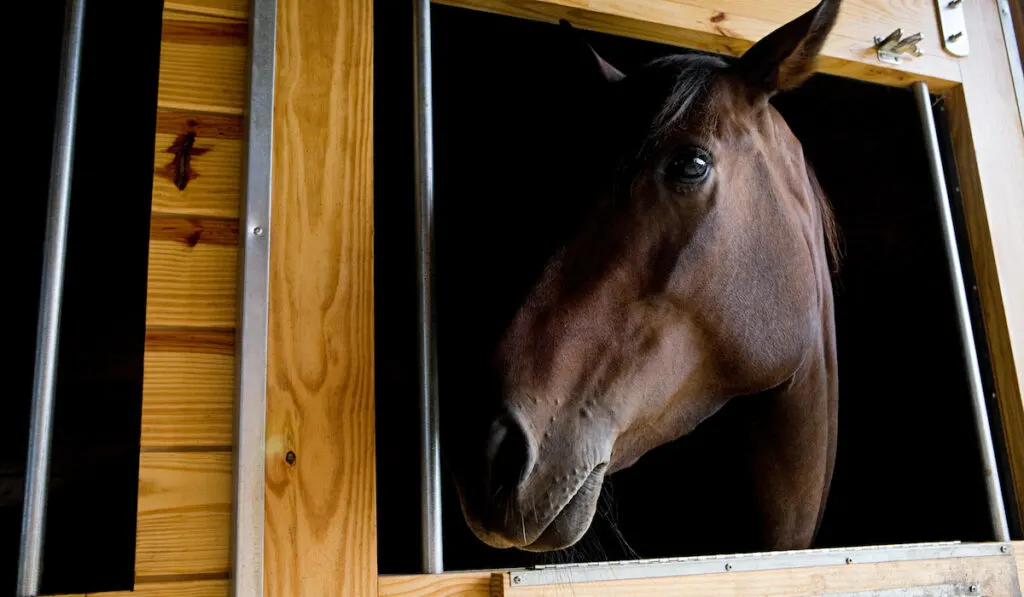
1994 was the year of the Northridge earthquake and also the year I got my first horse. I was too young, then, to consider planning for an earthquake but with the recent 7.1 magnitude quakes here in California, now is as good a time as any to prepare.
How do horses deal with earthquakes? Overall most horses do just fine when an earthquake hits. Some will run or get spooked by the earth’s vibrations while others will hardly even seem to notice the earth just shook. What is most important is for you to have an emergency plan in place for emergency events that can follow large quakes.
Table of Contents
Can Horses Predict Earthquakes?
There are some that will say that horses and other animals can predict earthquakes. I personally feel that, as prey animals, they are much more sensitive to earth vibrations and sounds.
When the tectonic plates move, the resulting vibrations can be felt hundreds of miles away in some cases. Horses who seem to “predict” earthquakes may just be sensing these vibrations before we humans recognize them. The USGS has an informative article on the topic that basically says more research needs to be done.
It is always a good idea to be in tune with your horse. If you are riding and they seem distracted or worried, dismount and walk for a bit. You can always get back on. It’s important to trust your gut, you never know what your horse may be trying to tell you.
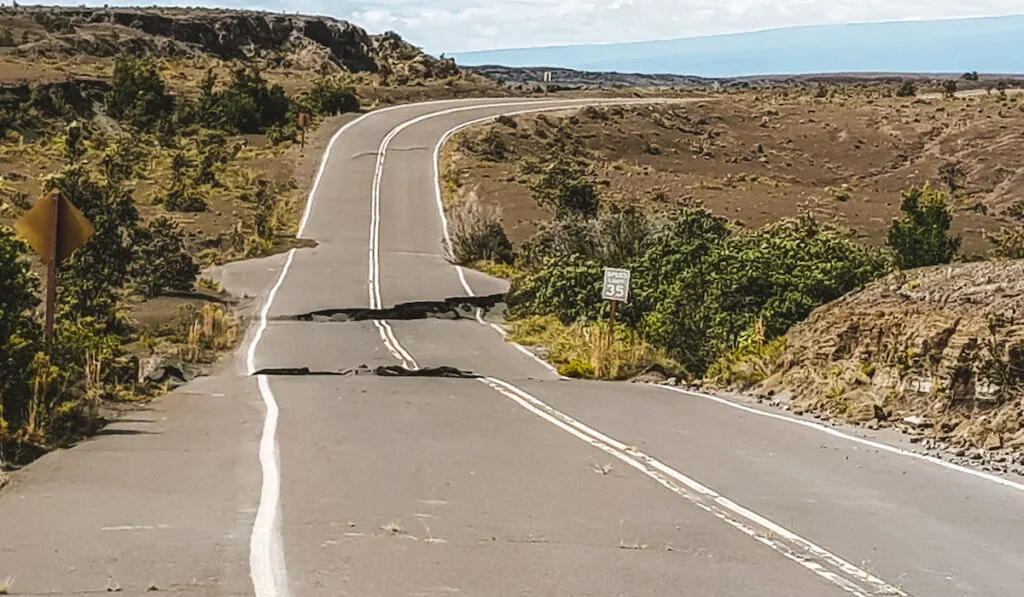
5 Things You Can Do to Prepare Your Barn for an Earthquake
While anywhere in the world could technically experience an earthquake, there are some parts of the United States more prone to them than others. If you live in an area, like California, that is prone to earthquakes, there are definitely some steps you can take to make sure your barn or horse property is prepared.
- Make an emergency plan and practice it at least once per year. Establish and plan what you will do during the earthquake dependant on where you are. What you might do in the barn would be different than in the house, etc.
- Know where all your shutoffs are. In the event of an earthquake, cracked gas lines, water lines and downed power lines can all be a major concern. If you ever see down power lines, stay way back and call 911, there isn’t anything you can do about that. For water and gas though, knowing where your shutoff valves are and how to turn each off is an essential part of earthquake preparedness.
- Keep at least 3 days worth of food and water on hand for each animal. We know this is hard for larger livestock. They eat more food and drink more water but it is critical. See our food and water tips below.
- Have an evacuation plan in place. If something happens and you need to evacuate, do you know where you should go? Will your horses halter? Will they load into a strange trailer? It is better to be over-prepared than to have to leave your horse in an emergency.
- Keep halters and lead ropes accessible. It is important to keep halters and lead ropes accessible. You should also consider securing a small dog tag to each halter. A small, round plastic pet tag will last for years. Keep it simple and use just your barn name and emergency contact information. You don’t want to worry about matching horses to halters in an emergency.
- Make an emergency binder. A great place to store your evacuation plans, emergency contacts, horse identification and feed information and anything else you might need in a disaster is a binder. Have one for the barn and the house just in case. No matter how much planning you do, things get stressful when an event is actually happening and having that binder with the plan will help you get through it.
Many of our FREE printable horse forms would work great for your emergency binder!
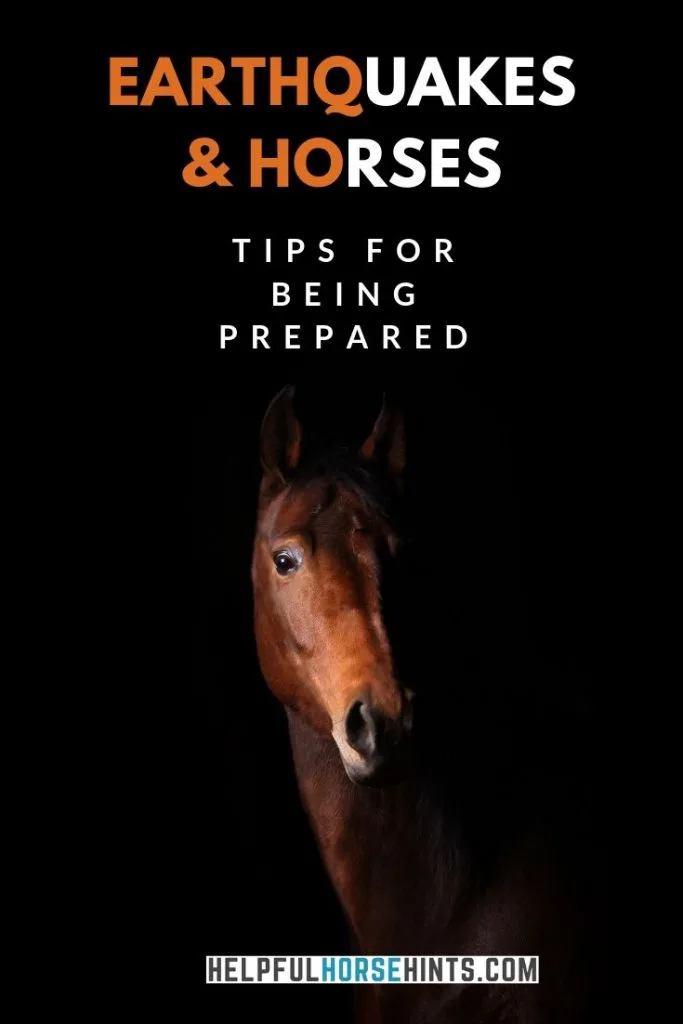
Maintain Adequate Food and Water Supplies
One of the many things that were drilled into us after the Northridge earthquake is the importance of having at least 3 days supply of food and drinkable water for each person in the house.
The idea being that after a large event, like an earthquake, roads may be impassible and stores may be closed due to damage. Sometimes, the best option is to shelter in place but, in order to do that, you need to have adequate supplies.
What works for pets also applies to farm and livestock owners. Each animal should, ideally, have at least a 3 day supply of feed, medication, and water in case of an emergency.
Feed
Thankfully most barns have a more than adequate hay supply on any given day. Though, this is a reminder to really make an effort to not let your hay room dwindle to completely empty.
If your horse is on any required medication, this too should be on hand in case of an emergency. Your vet may be inundated with emergencies and mail may not be able to deliver refills you ordered. While hopefully, this won’t be the case, it’s best to always have a reserve supply set aside in case of emergency.
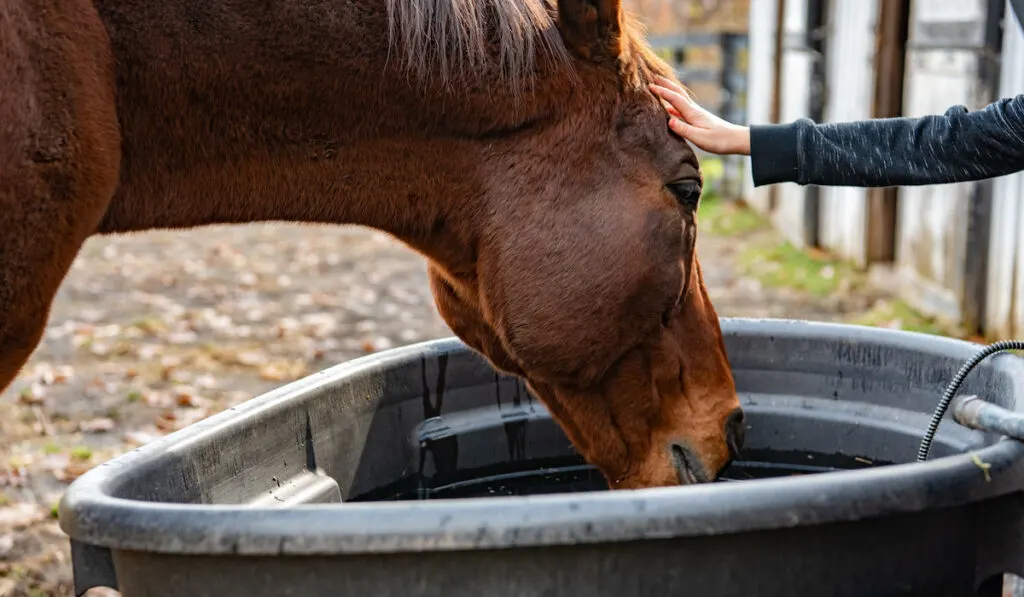
Water
A single horse needs, on average, 12 – 20 gallons of water each day stored for use in case of emergency. (source)
If an earthquake or natural disaster hit in your area today, would you be prepared with an adequate water supply for all of your horses?
Water is something that not a lot of facilities in the city may be prepared to be without. If you are on city water, what happens if the water supply is interrupted? Bottled water is easy enough to keep on hand for a human but for a horse, water resources become much more important.
If you are on a well, consider having a backup generator in case the electricity goes out. If the well is compromised, how will the horses get access to water?
In the Southern California region, many horses are on automatic watering systems that, while convenient, don’t store very much water. While these are great because they ensure a constant supply of freshwater, in an emergency, if that water supply is interrupted, an alternate source will be needed.
Water shutoff’s in Southern Calfornia occasionally happen for other reasons as well. These are usually short term but are one of the reasons my absolute favorite automatic waterer is a 4-gallon bucket type (like this one on Amazon ), still, this wouldn’t be enough to last three days.
Consider using large, plastic trash cans for storing emergency water for horses. These can usually be sourced inexpensively at the local hardware store. Remember to keep the lid tightly sealed and change the water out a few times a year. Hopefully, you will never need them but it is better to have them and not need them than need them and not have them.
Resources
The AAEP (American Association of Equine Practitioners) has an excellent resource section for disaster preparedness that you should check out for more information.
Final Thoughts
It is vital to make a plan before disaster strikes. Earthquakes are particularly dangerous because there is often little to no warning that they will strike. When they do, the result can be a loss of power and water for several days. With livestock, preparation is critical to keep your animals in place as well as to be ready for evacuation if the need arises.
If you liked this article, here are a few others you may enjoy:
- Top 3 Options for Managing Water During the Summer Heat
- Controlling Rats and Mice in Your Barn
- Warts in Young Horses
Source:
- https://earthquake.usgs.gov/learn/topics/animal_eqs.php

